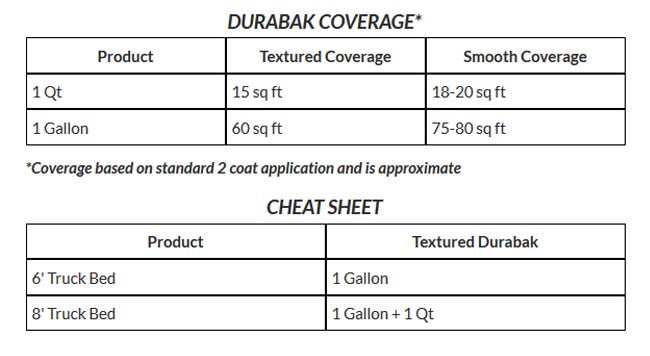8 Ways to Improve The Fuel Economy of Your Truck
If you want to improve the fuel economy of your truck you are not alone.
Owning a truck comes with a lot of built-in convenience and unfortunately affordable gas mileage is not one of them
They’re great for hauling large loads and heavy equipment, and many individuals and businesses rely on trucks to get the job done. Unfortunately, all that power often comes at a hefty price.
As fuel costs continue to rise, many truck owners find themselves spending more and more cash to keep their vehicles on the road. These expenses can cause significant problems, particularly for people who frequently drive large distances, or spend a lot of time in traffic.
With the world’s economy becoming increasingly volatile, it’s important to know how to improve your truck’s gas mileage to avoid taking a financial hit in case a price surge occurs.
Following these tips can help put money back in your pocket and keep your truck’s engine running smoothly for years to come.
1. Use a ScanGuage
ScanGuage is a high-tech performance monitor that’s compatible with all OBDII trucks, cars and hybrids.
It easily connects to your diagnostic port and requires no tools to install.
Once in place, it will measure a variety of information including fuel system loop status, revolutions per minute, trip fuel cost, fuel pressure and of course your average fuel economy.
By paying attention to the actual data from your vehicle, you can experiment with different habits and choices and get instant feedback.
2. Make Your Truck More Aerodynamic
Reducing air drag can make a huge difference to your fuel economy.
There are many options to choose from in the market, and you’ll need to do your research to make sure that the product will work and that you’ll receive a decent return on your investment.
Installing the modifications yourself will help further increase the amount of savings. Examples include undertrays, wheel skirts, bed caps, grille treatments and aerodynamic tailgates.
3. Fill Your Tank with the Right Kind of Fuel
Many drivers get nervous at the pump and automatically choose the cheapest option. However, it’s important to use the right amount of octane in your tank. Check your truck’s manual to find out the recommended fuel type.
Using a lower octane gasoline can make your engine run poorly and may even damage the engine if used for an extended length of time. Not only will this reduce your fuel efficiency, you may end up having to replace your engine prematurely.
4. Reduce Your Load
It can be easy to lose track of how much weight you’re carrying in your truck bed. It’s important to organize your truck’s haul and get rid of items that aren’t used on a frequent basis. If you use your tool box every day, then it makes sense to leave it there. However, if you’ve got a load of lumber from three weeks ago, or a heavy tool that’s rarely used, take it out.
Hauling around hundreds of pounds of equipment can cost you a lot at the fuel pump. Only take what is necessary on each trip, and make a habit of unloading the truck bed when you’re finished.
5. Don’t Leave Your Truck Running When Idle
Commuters in America spend almost a full work week per year just sitting in traffic. All those hours in rush hour on the interstate, and the minutes waiting at red lights and fast food drive-thru lanes add up to a lot of wasted fuel. If you come to a complete stop while driving and are confident you’ll be sitting for twenty minutes before pressing the gas pedal, it might be wise to turn your truck off instead of emptying your tank.
6. Plan Your Trips Ahead of Time
Many people use their trucks to make service calls or to meet with clients that span a wide area. If you have multiple stops to make every week, try combining trips as often as you can. Use the tools available on your smart phone to pinpoint the exact locations of the places you must go, and create a multi-destination map with the fastest routes. Not only will this help make you more efficient with your time, it can also keep you from wasting your budget on unnecessary fuel costs.
7. Make Your Trucks Maintenance a Top Priority
Ignoring important maintenance and upkeep can put an unnecessary strain on your truck’s engine and cause you to sacrifice fuel efficiency. Though you may be tempted to save money by putting off your next oil change, in the long run it will most likely cause you a larger financial headache. Be sure to get regular inspections from an experienced mechanic and keep an eye on your oil, spark plugs, air filter and tire pressure.
8. Use Cruise Control When Possible
Constant changes in acceleration can cause a huge dip in your truck’s fuel economy. While driving in the city, traffic may force you to push on the brake and accelerator more often; try to avoid harsh stops and starts and be gentle when approaching lights and stop signs. When on the highway or any long stretch of open road, make sure to switch to cruise control to save more gas.
Many people avoid buying a truck because they hear horror stories of terrible mileage from friends and family. It’s true that having a truck can put a significant dent in your budget, but only if you’re unprepared. While some of these fuel saving techniques require a change in habits, it’s well worth the effort. Saving money at the gas station means having more cash available for other priorities. Not only will these tips keep your hard-earned dollars in the bank, they will also help you maintain the overall health of your truck and ensure that you get the best return on your investment.


